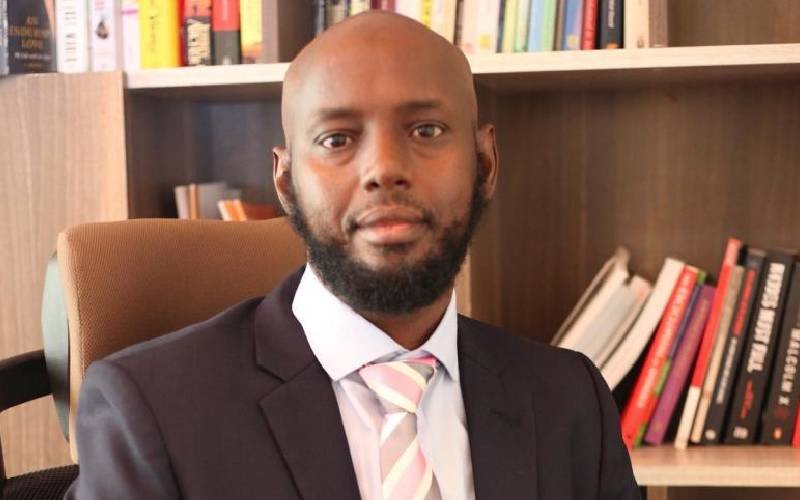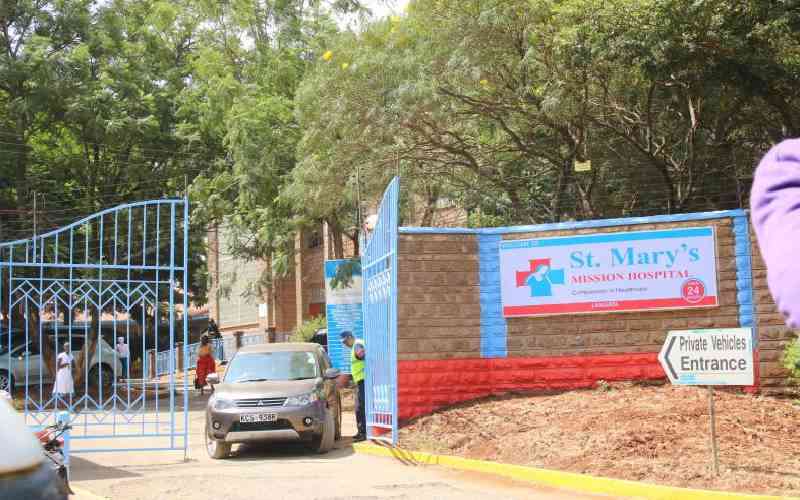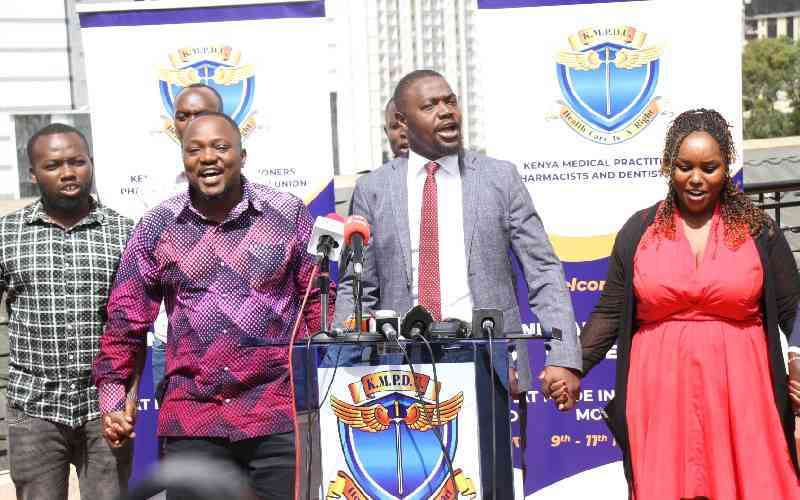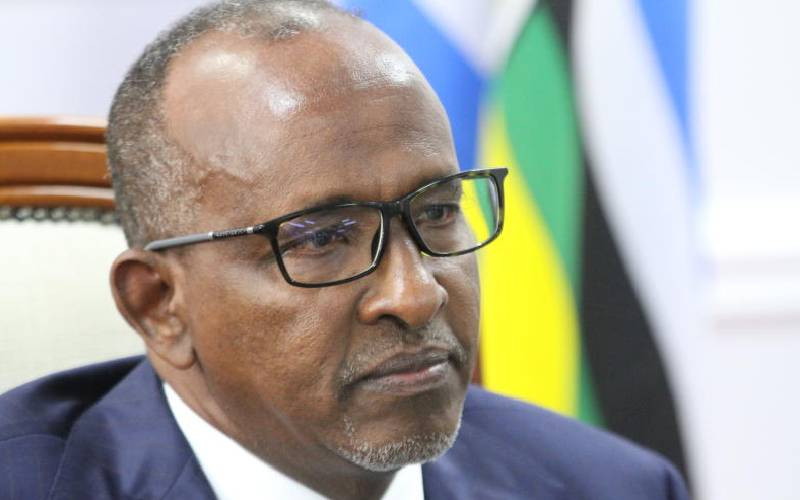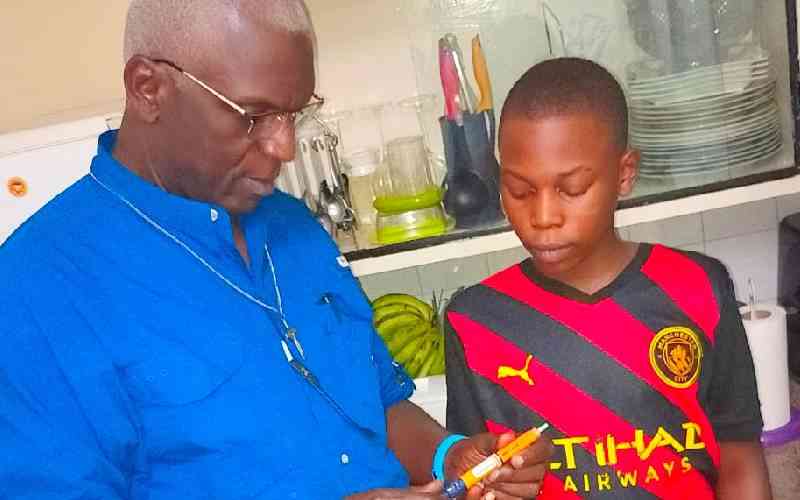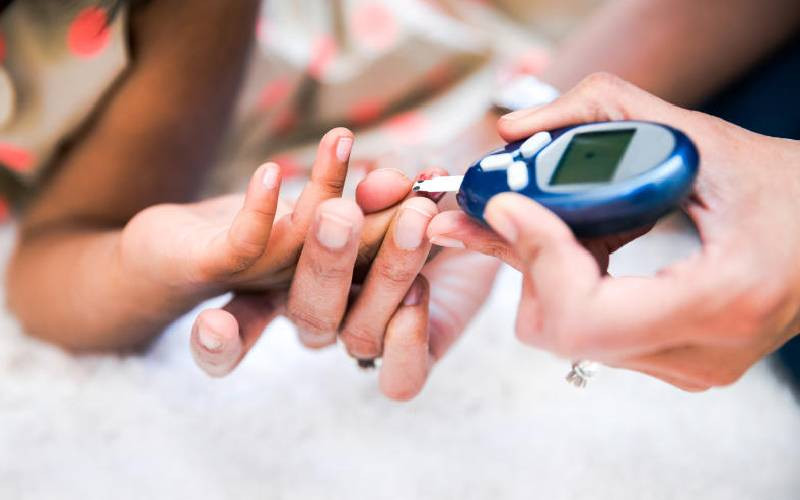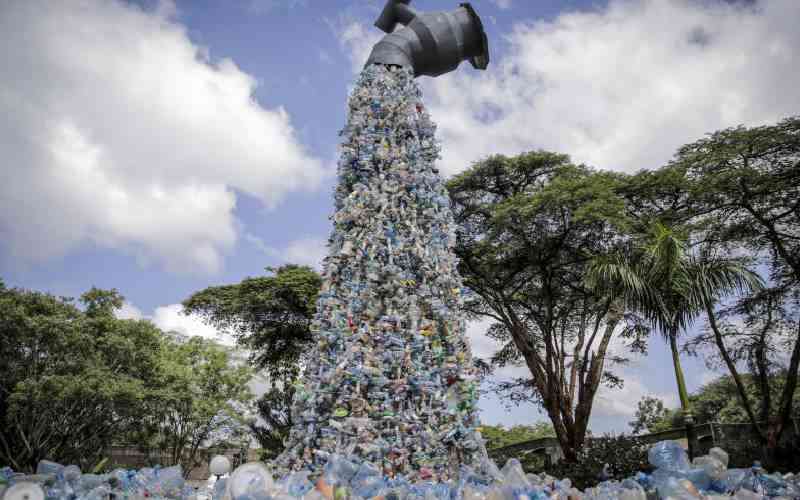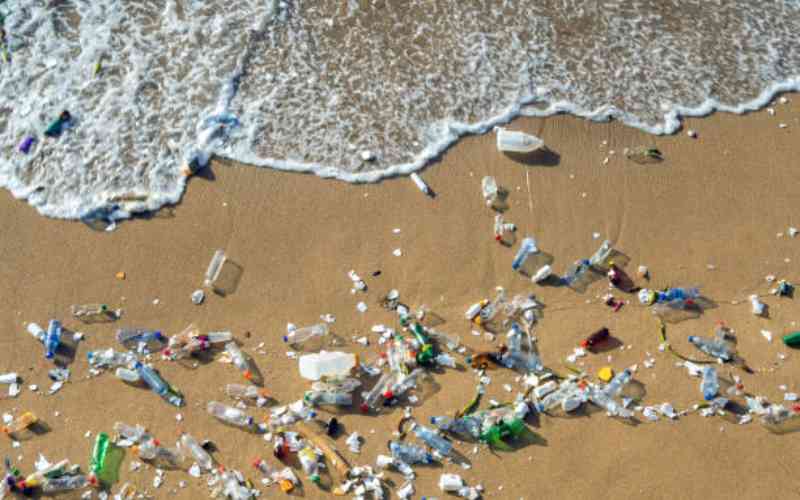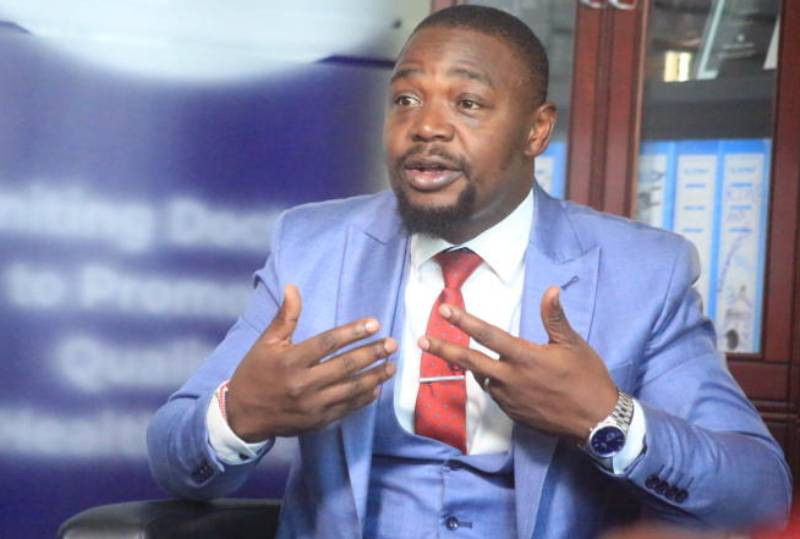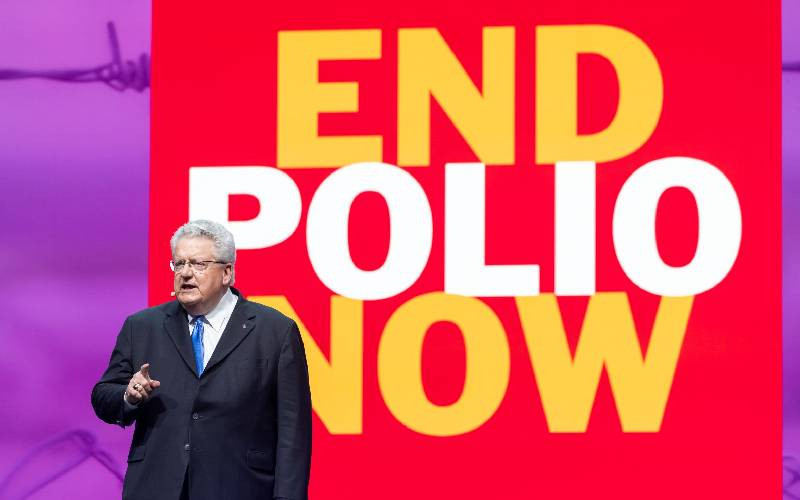
Kenya is set to benefit from a US$450 million (Sh 58.5 billion) funding boost aimed at accelerating global polio eradication efforts.
The funding stems from a renewed partnership between the Bill and Melinda Gates Foundation and Rotary International, focused on strengthening immunisation campaigns amid rising challenges to disease elimination.
The global ambition to eradicate polio, once seemingly within reach, confronts an array of formidable challenges, ranging from geopolitical instability and funding gaps to outbreaks in regions previously declared polio-free.
Among the major challenges for Kenya has been vaccine financing, which has in the past resulted in stock-outs, risking severe disability and deaths in newborns.
The country has been grappling with a stock-out of polio vaccine, risking severe disability and death among newborns.
In a decisive move to counter these escalating threats and inject renewed vigour into the final stages of eradication, Rotary and the Gates Foundation today announced a substantial joint commitment of up to US$450 million for global polio eradication efforts.
The pledge was revealed at the annual Rotary International Convention in Calgary, reaffirming a long-standing partnership now more critical than ever.
- Government to distribute 6.2 million vaccine doses amid national shortage
- Kenya receives 3 million BCG vaccine doses
- Kenya faces polio vaccine shortage amid growing regional threats
- KEMRI unveils Sh 64 million polio lab to boost regional surveillance
Keep Reading
This renewed financial commitment signals an urgent recognition by leading philanthropic and humanitarian organisations that, despite remarkable progress, the path to zero polio cases is increasingly complex and demands sustained, strategic investment.
"While historic progress has been made toward defeating polio, 90 per cent of the world’s population is free from the wild poliovirus, we are facing significant challenges from competing financial priorities to fragile health systems," stated Mike McGovern, Rotary International PolioPlus Committee Chair.
"Furthermore, the detection of polio in places like Papua New Guinea that were previously polio-free demonstrates that polio anywhere is a threat everywhere.”
He believes that the extension of the fundraising partnership with the Gates Foundation allows Rotary to reach children around the world with lifesaving vaccines, keeping every child and community safe from this preventable disease.
Under the renewed agreement, Rotary will continue its dedicated fundraising, aiming for $50 million per year.
Every dollar raised by Rotary will be matched with two additional dollars from the Gates Foundation, collectively providing up to $450 million over three years to support the Global Polio Eradication Initiative (GPEI).
"Rotary was the first to envision a world without polio—and today, we have the tools and knowledge to make that vision a reality,” said Bill Gates, Chair of the Gates Foundation.
“If we all maintain our commitment and keep funding the solutions we know work, then soon, no family will have to live in fear of this horrific disease ever again."
These vital funds will be deployed to support a comprehensive array of activities, from crucial vaccine delivery and enhanced surveillance to robust community engagement and the sustained implementation of polio eradication programs in the remaining affected regions.
A particular focus will remain on Afghanistan and Pakistan, the two nations that continue to report cases of wild poliovirus.
The funding also enables Rotary to provide emergency response for polio outbreaks, exemplified by the US$500,000 committed in late 2024 to support a two-round polio vaccination campaign in Gaza following a confirmed case of a 10-month-old child who was diagnosed with polio.
Polio, a paralysing and sometimes deadly disease, is on the verge of becoming only the second human disease in history to be eradicated.
This critical funding infusion ensures that efforts to protect children in at-risk countries continue with the necessary resources.
"For 40 years, Rotary has remained steadfast in our commitment to ending polio for good, and the Gates Foundation partnership renewal underscores the importance of this effort,” said Rotary International President Stephanie Urchick.
He added, “With gratitude to the Gates Foundation, we remain resolute in delivering on our promise of a polio-free world.”
Rotary has been at the forefront of polio eradication since launching its PolioPlus program in 1985, contributing over US$2.9 billion and countless volunteer hours.
In 1988, Rotary, alongside the World Health Organisation (WHO), UNICEF, and the U.S. Centres for Disease Control and Prevention (CDC), co-founded the GPEI.
This partnership was later joined by the Gates Foundation and Gavi, the Vaccine Alliance.
From an annual incidence of 350,000 cases at the GPEI's launch, coordinated global efforts, supported by world governments like Canada, which has pledged over CAD$1 billion to the GPEI to date, have dramatically reduced cases by more than 99.9 per cent.
The renewed commitment from Rotary and the Gates Foundation is a testament to the enduring determination required to conquer the final, most challenging stages of polio eradication.
Prof Ruth Nduati, a paediatrician, has been encouraging parents to ensure their children are vaccinated against polio, in addition to pushing for the supply of polio vaccines by the government.
“In the past, before vaccines were introduced, newborns often suffered severe disabilities due to polio,” said “Polio causes lifelong disability, and only vaccination can protect our children".
Kenya’s goal is to reduce the number of zero-dose children by 25 per cent by 2025, and by 50 per cent in 2030, through the implementation of targeted outreach programs, mobile vaccination campaigns, and community health strategies aimed at increasing awareness and access to immunisation services.
“The Government of Kenya, with the support of GAVI, The Vaccine Alliance, worked on enhancing vaccine supply and logistics, enabling better coverage in underserved areas,” says UNICEF Kenya’s Chief of Health, Luigi D’Aquino.
According to routine information systems, half of the dose children are found in 14 counties, which include Nairobi, Mombasa, Kakamega, Kisii, Trans Nzoia, Kericho, Bomet, Uasin Gishu, Bungoma, Homa Bay, Kilifi, Kitui, Nandi and Wajir.
Nairobi and Mombasa, the two largest cities in Kenya, have the highest concentration of urban informal settlements, contributing to more than 60,000 zero-dose children, representing about 13 per cent of all zero-dose children in the country between 2019 and 2022.
 The Standard Group Plc is a multi-media organization with investments in media
platforms spanning newspaper print
operations, television, radio broadcasting, digital and online services. The
Standard Group is recognized as a
leading multi-media house in Kenya with a key influence in matters of national
and international interest.
The Standard Group Plc is a multi-media organization with investments in media
platforms spanning newspaper print
operations, television, radio broadcasting, digital and online services. The
Standard Group is recognized as a
leading multi-media house in Kenya with a key influence in matters of national
and international interest.

